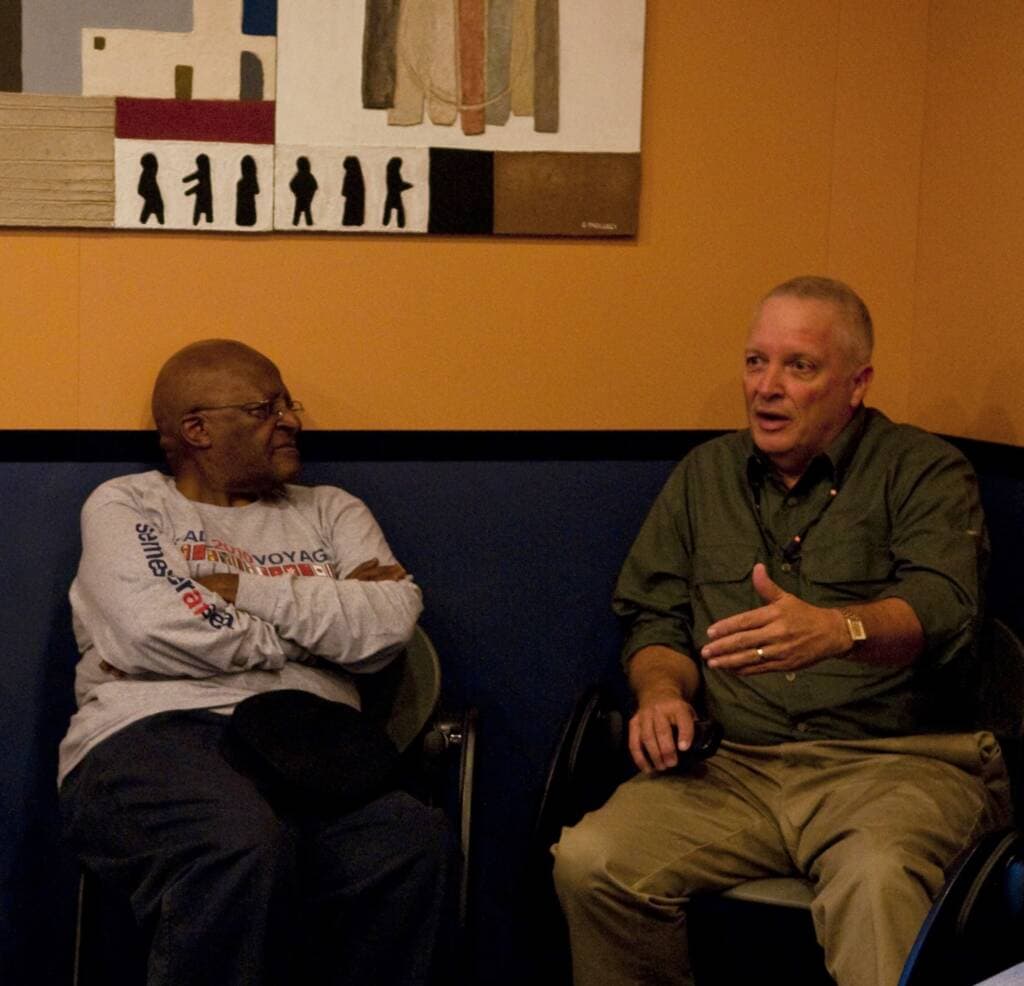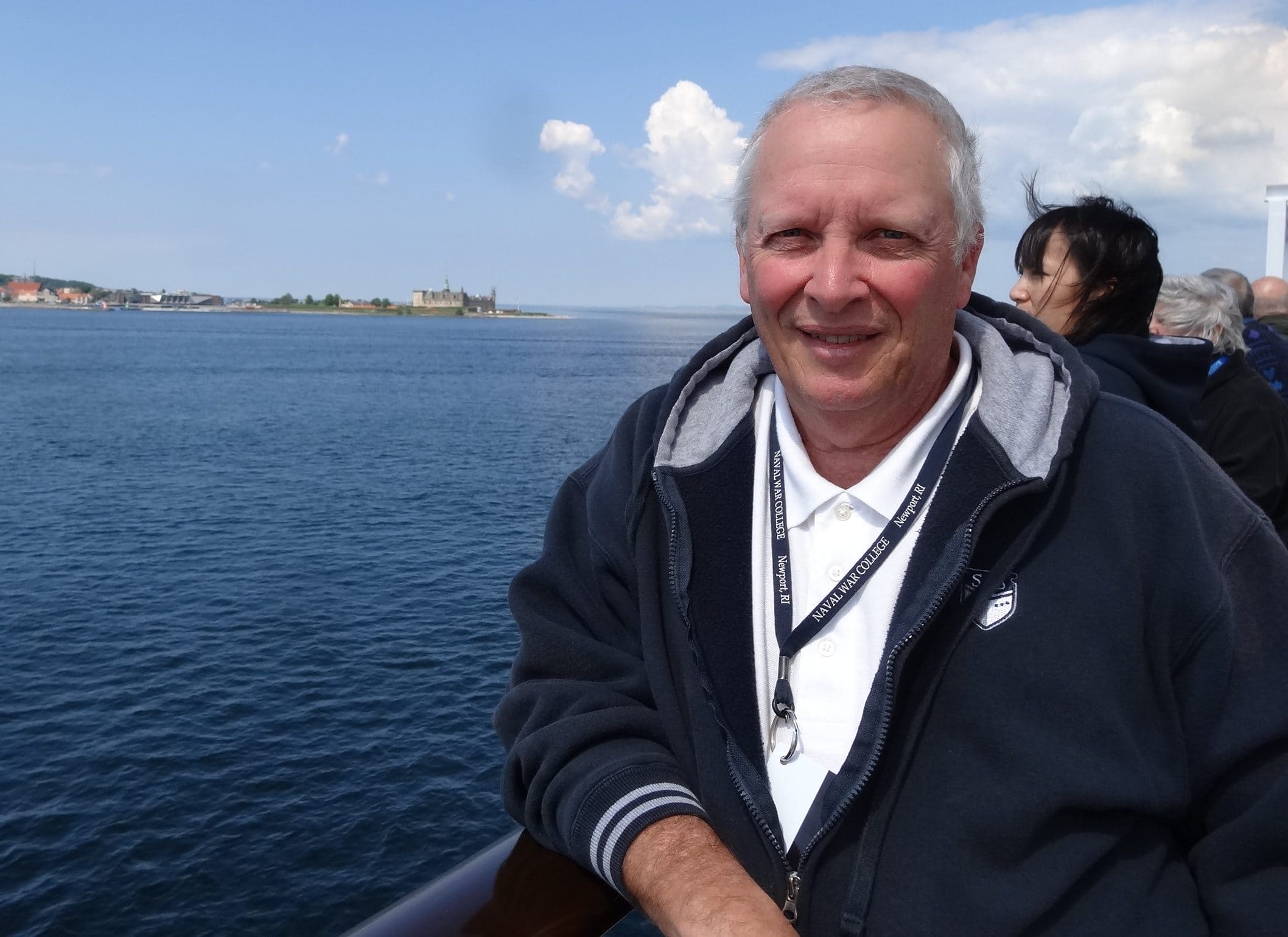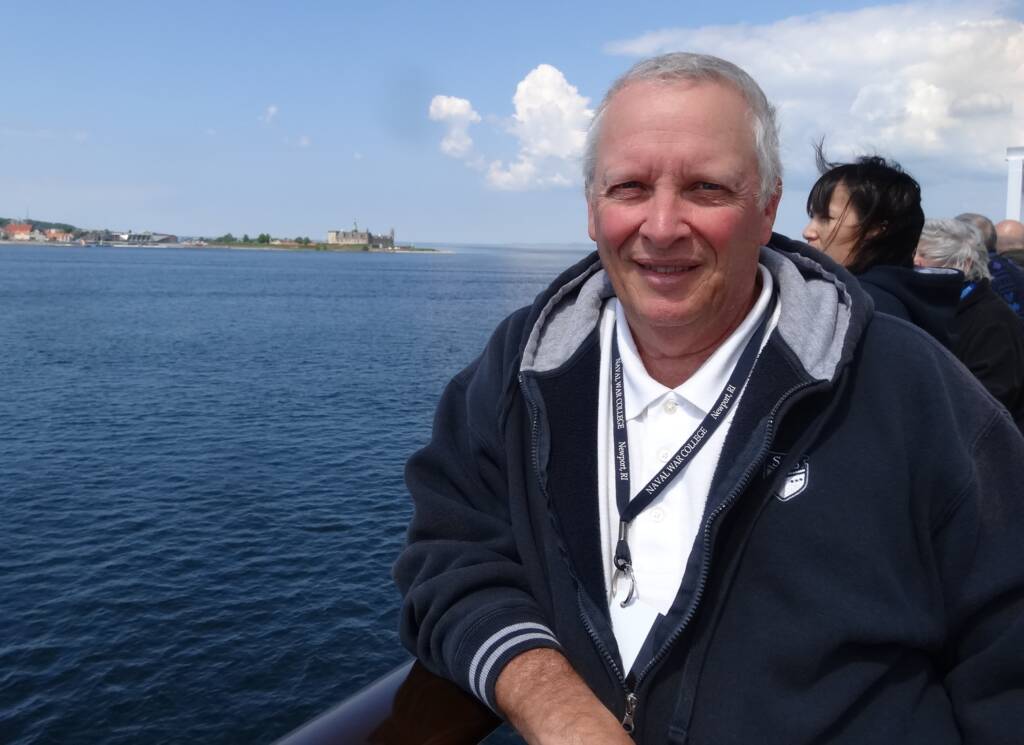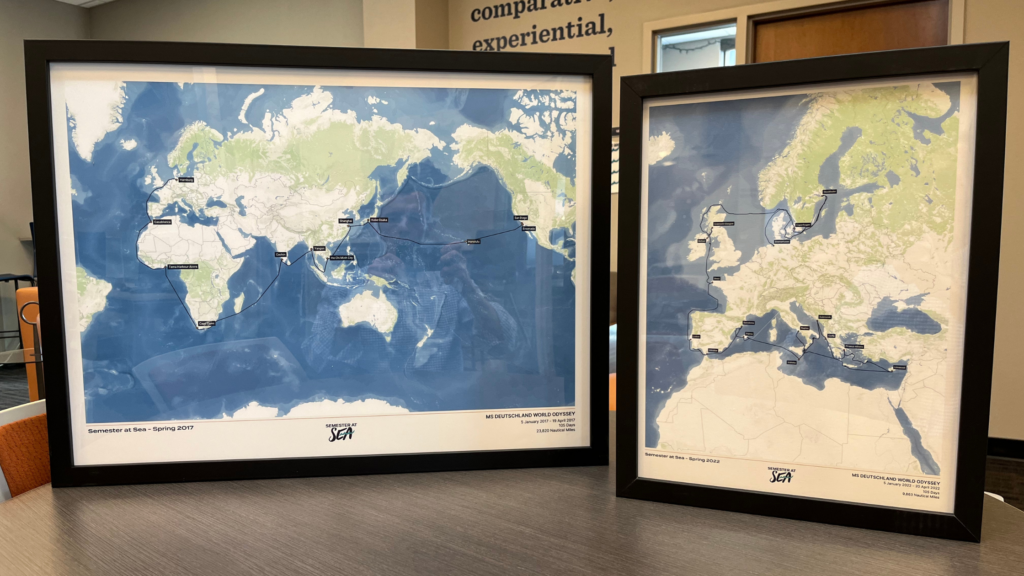Hands-on learning, with real-world application. It’s the basis of every Semester at Sea Voyage, and Fall 2017 Voyagers stand to benefit from from having Dr. Robert Smith’s unique combination of teaching and professional experience onboard.
Smith, a veteran of both Semester at Sea (Fall 2017 will mark his fifth full voyage as a faculty member) and the U.S. State Department, will be teaching three courses onboard the MV World Odyssey this fall: Cultural Geography, Coastal Environmental Ecology, and one of three World Interdependence courses, with an emphasis on oceans and laws of the sea.
Smith designed his coursework in part off his 30-plus years working in the State Department, with many of those years spent working as a geographer dealing in maritime law. His time spent in the federal government is a natural match for the World Interdependence course, which he says, “could be retitled how I spent my three decades with the State Department.” During the voyage, he wants his classroom to get a sense of the complexity and challenges of maritime law.
“I will have them (students) write me memos as if I’m the Secretary of State,” Smith said. “Hopefully they will gain an appreciation of how the world is carved up offshore in to different jurisdictional zones.”

That same practical application of what goes on in the classroom extends to Smith’s Cultural Geography class as well. The course will focus on, in Smith’s words, “the concept of place and have the students kind of appreciate all that kind of goes into a location, be it the human component, the physical component, whether there’s mountains or deserts or rivers, and kind of get an idea of why this place came about the way it did.”
The field class for Cultural Geography will be in Barcelona, where students will meet with a Parliamentarian and discuss the idea of Catalina as a place and culture, both separate from and part of greater Spain. Smith hopes to discuss the issue of Catalonian independence, and afterwards will have students write an op-ed about the debate.
However, the Cultural Geography class will not just be focused on Spain. Throughout the voyage, students will write memos about their time in other ports as part of a larger semester-long project.
“Stop, look around, let your senses open up your eyes and ears and write to me as if I’m your parent at home,” said Smith of what he expects from the memos. “So that I can feel like I’m just right next to you, experiencing what you’re looking at, smelling, and seeing, all that good stuff.”
If it sounds like written communication will be a common theme in Smith’s classes, that’s by design. His classes, based off many years of experience in the U.S. Government and as an instructor, strike a balance between theory and how it is applied after graduation—and a big part of that is making sure voyagers know how to be understood.
“Probably the single most thing I try to impart on the students in all of my courses is a writing skill,” Smith said. “I was basically part of the intelligence community of the U.S. Government and the bread and butter of my existence for the first seven or so years at State was to identify an issue worldwide—primarily an ocean, maritime related issue—that I thought needed to be brought to the Secretary’s attention, and so I’d write a memo.”
“There is a talent to knowing how to write well.”




